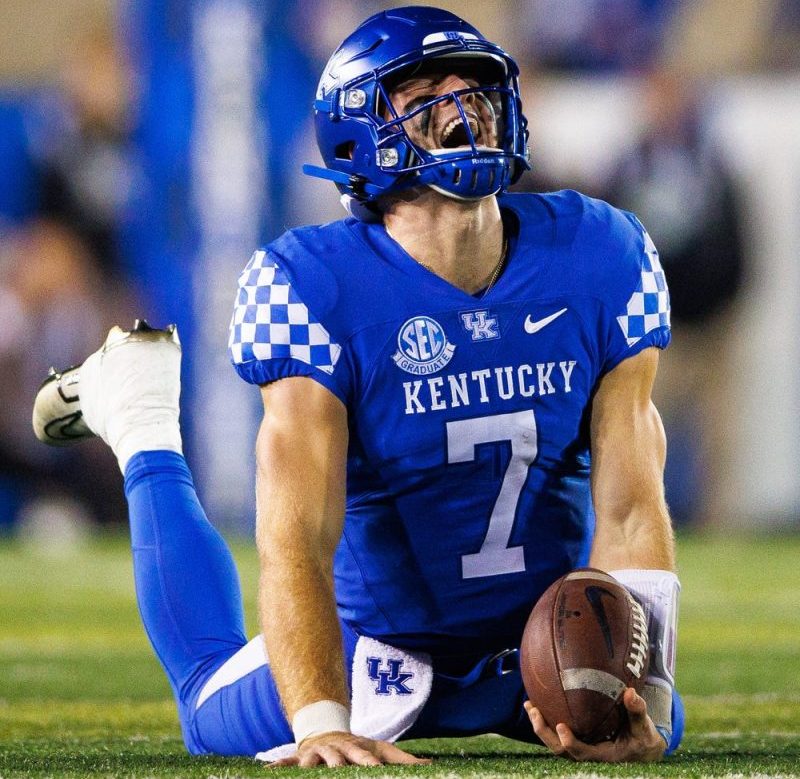INDIANAPOLIS — A crystal ball in the middle of a craps table would be an apt analogy to visualize the combination of risk, foresight and luck when it comes to drafting a quarterback with the intention of him becoming a franchise player.
‘That’s why this is both an art,’ said Carolina Panthers head coach Frank Reich, ‘and a science.’
Being clairvoyant is a bonus.
‘I think you got to see the future,’ Indianapolis Colts head coach Shane Steichen said. ‘Sometimes, that’s probably one of the hardest jobs, is predict the future of these young guys.’
Every team wants the next Patrick Mahomes, Josh Allen or Justin Herbert. The projection of their physical attributes, despite uneven play and lingering performance questions from college, was one of the driving factors in why their respective teams selected them inside of the top 10. And in the 2023 draft, a pair of prospects – Kentucky’s Will Levis and Florida’s Anthony Richardson – could be picked in a similar range based on the same belief that their talent can be molded to catalyze team success. Alabama’s Bryce Young and Ohio State’s C.J. Stroud also look bound for the top of the first round, but each enjoyed two prolific seasons as a starter, whereas Levis and Richardson’s college careers were decidedly more volatile.
Buffalo Bills general manager Brandon Beane traded up in the 2018 draft to select Allen seventh overall. Beyond the physical gifts Allen displayed at Wyoming, the Bills were equally invested in the mental component of the evaluation.
‘I think if I was in the quarterback market I’d be wanting to know (more), I’d be wanting to talk to his coaches, I would be wanting to talk to his teammates,’ Beane said.
Like Allen, and even Mahomes, the game film reveals the rawness that make Levis and Richardson potential risks – or boons.
Beane has watched both Richardson and Levis play live and has heard the comparisons between both prospects and Allen. His advice to interested teams? Get digging.
‘What is his preparation?’ Beane said. ‘How bad does he want it? What is he like on game day? Is he building guys up? Does he take responsibility for his mistakes?’
For New York Giants general manager Joe Schoen, who was a Bills assistant GM while the team scouted Allen, the quarterback is in ‘a totally different stratosphere’ when it comes to evaluating.
‘Because you have to evaluate the person, how they learn, their instincts, how they process information,’ Schoen said. ‘To me, that’s way more important. You can watch the film and see one thing, but the makeup of the kid, I think, is way more important. When it mirrors up, I think that’s when you have a good quarterback.’
What the Bills learned about Allen during their scouting process – which included a meeting at the Senior Bowl, a private workout in Laramie, Wyoming, and a visit to the Bills’ Orchard Park, New York, facilities – left the organization with a feeling that ‘we’ve got a young man who’s still ascending and who has the DNA,’ Beane said. A quarterback must be his own worst critic, and they knew Allen was self-aware of deficiencies.
‘He’s very smart. He’s a competitive guy,’ Beane said. ‘And he’s got that want-to, that give-a-(expletive) factor that is like, man, I’m going to do whatever it takes to win.
“I think if you’re in the quarterback market those are key qualities, beyond the physical attributes that that player possesses.”
Kansas City Chiefs coach Andy Reid said evaluators tend to become hung up on arm strength.
‘That’s one thing. But that’s not necessarily the most important thing,’ Reid said. ‘It’s how the player handles the game, from the feet to the head. You got to also be a leader on top of that.’
Herbert’s draft process was impacted by the COVID-19 pandemic, but Steichen – then in his first offseason as the Los Angeles Chargers offensive coordinator – said what stood out was the prospect’s passion, even over video calls.
‘What I took away from that is that this is a guy that loves football and was a perfectionist and wanted to be right,’ Steichen said.
On Wednesday, Reich publicly weighed the pros and cons of the team finding its future quarterback through the draft or via Derek Carr’s free agency. With Carr, he said, it’s a known commodity for someone he considers in his prime. And younger quarterbacks are given a shorter leash these days.
“You don’t get as long of windows to prove yourself anymore,” he said.
But Carr, 31, isn’t turning into the next Mahomes or Allen.
“It’s the hardest position in sports to play … there are so many factors that go into quarterback play,” Reich said.
Drafting one, too.
Follow Chris Bumbaca on Twitter @BOOMbaca.

